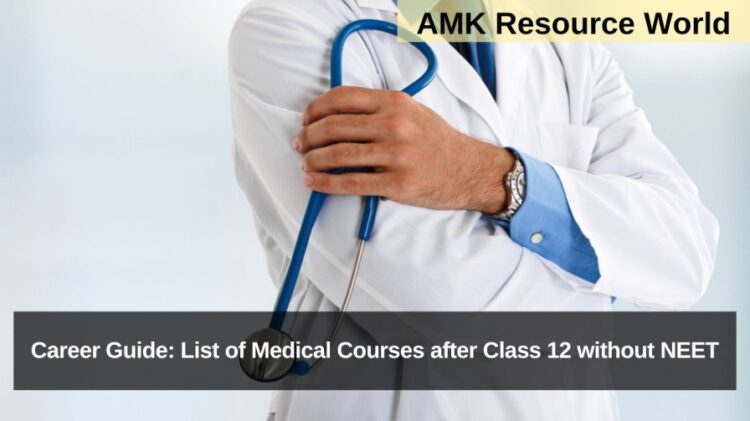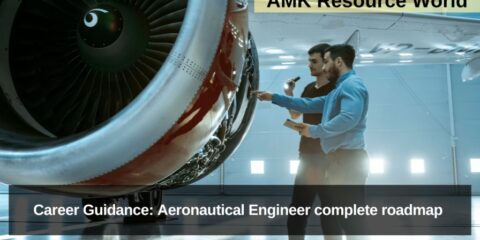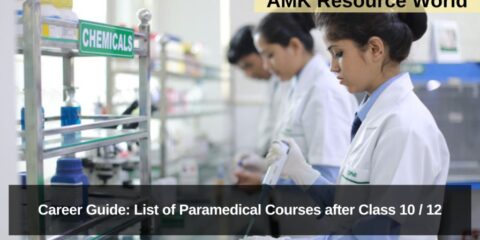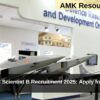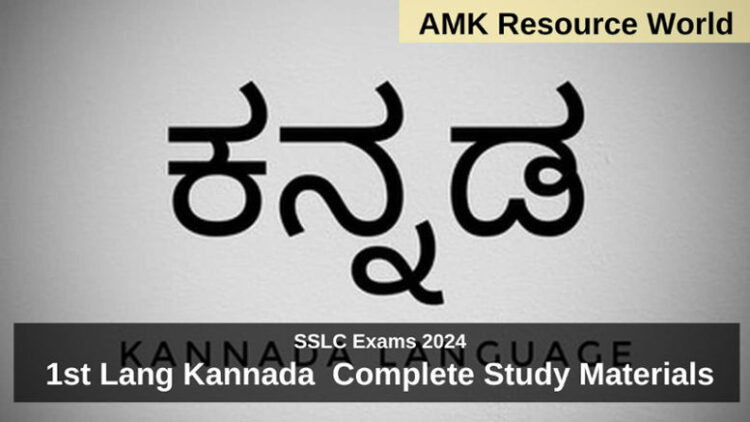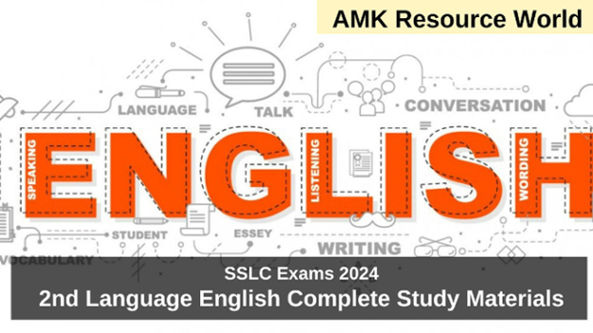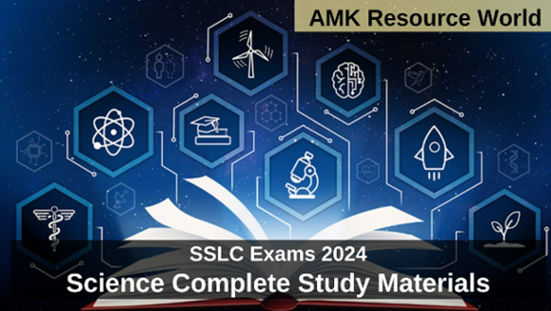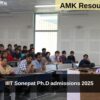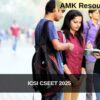For many students passionate about healthcare and medical sciences, cracking NEET (National Eligibility cum Entrance Test) may not always be the only path to a fulfilling medical career. While NEET is mandatory for courses like MBBS and BDS, there are several Allied medical and paramedical courses that do not require NEET. These programs are designed for students who wish to enter the healthcare sector through alternative yet equally rewarding professions.
A comprehensive list of medical courses after Class 12 without NEET is being provided, their duration, career opportunities
Bachelor of Science in Nursing (B.Sc Nursing)
A 4-year undergraduate program designed to prepare students as professional nurses capable of providing holistic care in hospitals, clinics, and communities. The curriculum blends theory and clinical training in areas like anatomy, physiology, psychology, pharmacology, and medical-surgical nursing. Graduates can work as staff nurses, ICU nurses, nurse educators, or administrators. With growing demand for healthcare professionals, B.Sc Nursing offers excellent job security and the opportunity to pursue higher studies like M.Sc Nursing or MBA in Healthcare Management for leadership roles in the sector
- Duration: 4 years
- Eligibility: 10+2 with Physics, Chemistry, Biology and English
- Career Prospects: Staff Nurse, ICU Nurse, Nurse Educator, Nurse Administrator
- Higher Studies: M.Sc Nursing, MBA in Healthcare
Bachelor of Physiotherapy (BPT)
This 4.5-year course, including internship, equips students to treat physical disabilities, injuries, and movement disorders through non-invasive techniques. It covers anatomy, biomechanics, therapeutic exercises, and rehabilitation sciences. Physiotherapists are in demand in hospitals, sports centers, rehabilitation facilities, and wellness clinics. BPT graduates help patients restore mobility, reduce pain, and prevent disability, playing a key role in recovery and physical well-being. With further specialization or postgraduate studies, career growth opportunities expand significantly in both clinical and academic fields.
- Duration: 4.5 years (including internship)
- Eligibility: 10+2 with PCB
- Career Prospects: Physiotherapist in hospitals, sports rehab, private clinics, wellness centers
Bachelor of Occupational Therapy (BOT)
BOT is a 4.5-year course that trains students to assist individuals in regaining functional independence through therapeutic activities. It focuses on physical, emotional, and cognitive rehabilitation. Occupational therapists are employed in hospitals, special schools, rehabilitation centers, and NGOs, helping people with developmental, neurological, or orthopedic challenges lead more independent lives. The course emphasizes holistic patient care, promoting wellness and adapting environments for better accessibility. It also provides a pathway for specialization and postgraduate education in mental health, pediatrics, or geriatrics.
- Duration: 4.5 years
- Eligibility: 10+2 with PCB
- Career Prospects: Occupational Therapist in hospitals, rehabilitation centers, NGOs
Bachelor of Science in Medical Lab Technology (B.Sc MLT)
A 3-year course focused on clinical laboratory skills, this program prepares students to analyze blood, urine, and other body fluids to help diagnose diseases. It covers microbiology, pathology, biochemistry, and hematology. Medical lab technologists play a vital role in hospital laboratories, pathology labs, blood banks, and research facilities. With automation and advanced diagnostic tools on the rise, trained MLT professionals are increasingly in demand. Opportunities for higher studies include M.Sc MLT or specialized diplomas in histopathology or cytotechnology.
- Duration: 3 years
- Eligibility: 10+2 with PCB
- Career Prospects: Lab Technologist, Pathology Lab Manager, Blood Bank Technologist
Bachelor of Science in Radiology & Imaging Technology
This 3-year program trains students in diagnostic imaging techniques like X-rays, CT scans, MRI, and ultrasound. It combines theoretical knowledge with practical training in operating advanced radiology equipment and analyzing medical images. Radiology technicians are essential in diagnostic centers, hospitals, and research labs, supporting physicians in identifying internal injuries, diseases, and abnormalities. The course also lays a foundation for further specialization in interventional radiology, nuclear medicine, or pursuing postgraduate studies in imaging sciences.
- Duration: 3 years
- Eligibility: 10+2 with PCB
- Career Prospects: Radiology Technician, MRI/CT Scan Operator, Diagnostic Imaging Specialist
Bachelor of Science in Optometry
A 4-year undergraduate course designed to educate students on eye care, vision correction, and ocular disease management. Optometrists conduct eye exams, prescribe glasses or contact lenses, and detect eye abnormalities. Career prospects include working in eye hospitals, optical chains, private clinics, and research labs. The course includes anatomy, optics, pharmacology, and clinical practice. Optometry is a growing field with rising demand due to increased screen time and aging populations, offering the potential for independent practice and specialization in pediatric or geriatric optometry.
- Duration: 4 years
- Eligibility: 10+2 with PCB
- Career Prospects: Optometrist in clinics, hospitals, optical stores, research labs
Bachelor of Science in Cardiovascular Technology
This 3–4 year course trains students to assist in diagnosing and treating heart-related conditions. It covers cardiovascular anatomy, physiology, instrumentation, and cardiac care procedures like echocardiography and cardiac catheterization. Cardiovascular technologists work in hospitals, cardiac care units, and operation theatres, supporting cardiologists during complex procedures. The program offers a strong foundation for further studies or certifications in cardiology or invasive techniques. With heart diseases on the rise globally, the demand for trained cardiovascular technologists continues to grow
- Duration: 3 to 4 years
- Eligibility: 10+2 with PCB
- Career Prospects: Cardiac Technologist in cardiac care units, catheterization labs, ICUs
Bachelor of Science in Anesthesia Technology
A 3-year course designed to equip students with the skills required to assist anesthesiologists during surgeries. It covers human anatomy, pharmacology, anesthesia equipment handling, and emergency care. Graduates work in operation theatres, ICUs, and emergency departments, ensuring patients are safely anesthetized and monitored. This role is crucial in surgical environments, where precision and critical thinking are vital. With advanced training, professionals can move into senior technician roles, research, or postgraduate studies in critical care technology.
- Duration: 3 years
- Eligibility: 10+2 with PCB
- Career Prospects: Anesthesia Technologist in operation theatres, critical care units
Bachelor of Science in Renal Dialysis Technology
This 3-year program prepares students to operate dialysis machines and assist nephrologists in treating patients with kidney failure. Coursework includes renal physiology, dialysis principles, patient care, and fluid-electrolyte balance. Dialysis technologists are essential in hospitals and private dialysis centers, managing life-sustaining treatments. They play a critical role in maintaining equipment, monitoring patients, and ensuring sterile environments. As chronic kidney diseases become more prevalent, the need for skilled dialysis technicians continues to rise, offering stable employment and growth opportunities.
- Duration: 3 years
- Eligibility: 10+2 with PCB
- Career Prospects: Dialysis Technician in nephrology departments, private dialysis centers
Bachelor of Science in Perfusion Technology
This 3–4 year degree trains students to operate heart-lung machines during cardiac surgeries. Perfusionists monitor vital parameters, manage extracorporeal circulation, and ensure the artificial maintenance of blood flow and oxygenation. They work closely with cardiac surgeons in high-stress environments. The course includes anatomy, physiology, pharmacology, and practical perfusion training. This specialized field has limited but high-demand roles in major hospitals and cardiac centers, and offers strong career potential for those interested in critical care and surgical support.
- Duration: 3-4 years
- Eligibility: 10+2 with PCB
- Career Prospects: Perfusionist in heart-lung machine operations during surgeries
Bachelor of Science in Emergency and Trauma Care Technology
A 3-year course that prepares students to provide immediate medical care in emergencies and trauma situations. It includes training in pre-hospital care, disaster management, emergency room protocols, and trauma life support. Graduates can work as emergency medical technicians (EMTs), trauma care assistants, or emergency room specialists in hospitals, ambulances, or disaster response teams. Their quick decision-making and technical skills often make the difference between life and death in critical situations. This is an ideal course for those drawn to fast-paced, high-impact healthcare roles
- Duration: 3 years
- Eligibility: 10+2 with PCB
- Career Prospects: Emergency Medical Officer, Trauma Care Technician
Bachelor of Prosthetics and Orthotics
A 4-year course that trains students to assess, design, and fit artificial limbs (prosthetics) and supportive devices (orthotics) for people with physical disabilities. The curriculum blends biomechanics, rehabilitation engineering, and material sciences. Professionals in this field work in rehabilitation centers, hospitals, and NGOs, contributing to restoring mobility and quality of life. It’s a fulfilling career for those interested in medical technology and patient care, with the potential to work with war veterans, accident survivors, or children with congenital limb conditions
- Duration: 4 years
- Eligibility: 10+2 with PCB
- Career Prospects: Specialist in designing and fitting artificial limbs and braces
Bachelor of Science in Nutrition and Dietetics
This 3-year program covers human nutrition, diet planning, food science, and public health nutrition. Students learn to assess dietary needs, develop nutrition programs, and counsel patients on healthy eating. Career options include clinical dietitians in hospitals, nutrition consultants, food analysts, or public health officers. With rising health awareness and lifestyle diseases, nutritionists are increasingly sought after in healthcare, sports, wellness, and hospitality industries. The course also serves as a stepping stone for higher education in dietetics, food technology, or public health.
- Duration: 3 years
- Eligibility: 10+2 in Science
- Career Prospects: Clinical Dietitian, Nutritionist, Food Analyst
Bachelor of Science in Forensic Science
A 3-year interdisciplinary course that trains students to investigate crimes using scientific methods. It includes forensic biology, chemistry, toxicology, ballistics, and fingerprint analysis. Graduates work as forensic analysts, lab technicians, crime scene investigators, or consultants for law enforcement agencies. The role requires analytical skills and attention to detail. Forensic science professionals help solve criminal cases by collecting and interpreting physical evidence. With advancements in crime detection and growing interest in criminal justice, this field offers both excitement and stability.
- Duration: 3 years
- Eligibility: 10+2 with PCB
- Career Prospects: Forensic Analyst, Crime Lab Technician, Law Enforcement Consultant
A career in healthcare doesn’t begin and end with MBBS. The world of paramedical and allied health sciences is vast, dynamic, and full of potential. By choosing one of the medical courses after Class 12 without NEET, you can still become an integral part of the healthcare industry and make a real difference in people’s lives.
Whether it’s a role in diagnostics, therapy, emergency care, or nutrition, each of these fields offers respect, stability, and global demand. And with Karnataka housing some of the best institutions for such courses, students have excellent local opportunities to build a successful and meaningful career.
